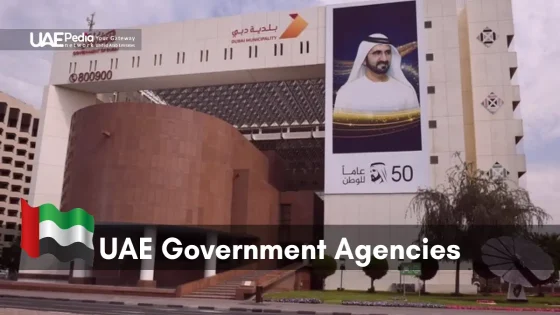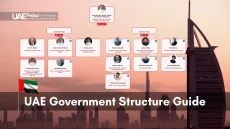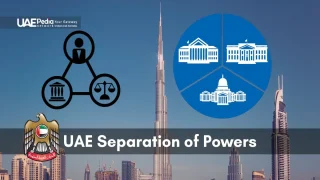The UAE has a special way of making laws. It’s a mix of old traditions and new ideas. This makes the law-making process very interesting.
Did you know that laws in the UAE need the President’s okay and the Supreme Council’s approval? This is written in Article 110 of the UAE Constitution.
Looking into how laws are made in the UAE shows a complex but interesting system.
UAE Legislative Process: Understanding the Constitutional Framework
The UAE Constitution is the heart of the country’s laws. It has 152 articles that explain the UAE and its people’s rights. This document guides the making of laws in the Gulf nation.
The Role of the UAE Constitution in Law-Making
The UAE Constitution runs the state and defines its politics. It helps make laws in a clear way. In 2008, the Supreme Council made changes to give more power to the Federal National Council (FNC).
Federal Laws and Their Strategic Importance
Federal Laws in the UAE handle big issues. They deal with state, institutions, and people. These laws cover important topics like foreign affairs, defense, and education.
Types of Legislative Instruments
The UAE uses different tools to make laws:
- Decrees by Law
- Federal Decrees
- Resolutions of the President and Prime Minister
- Cabinet Resolutions
- Decisions issued by ministries
Jurisdiction of Federal Laws
The UAE has seven Emirates, each with its own power. Federal laws are for all Emirates, keeping things the same everywhere. Local governments handle their own issues, making sure laws are fair.
Implementation and Enactment of UAE Laws
The UAE’s law-making process is clear from start to finish. It makes sure each step is checked and approved.
The Cabinet’s Role in Draft Laws
The UAE Cabinet is very important in making laws. They create bills that meet the country’s needs and goals. These drafts are the start of new laws.
Federal National Council’s Review Process
The Federal National Council (FNC) looks at new laws. They can pass, change, or reject them. This makes sure laws are good for everyone.
Presidential Approval and Supreme Council Ratification
After the FNC checks them, bills go to the President. Then, the Supreme Council makes them official. This is a big step in making laws.
Publication and Enforcement Timeframes
New laws are published in the official Gazette. They start one month after that. This gives everyone time to get ready.
Emergency Decree Laws and Their Validity
In emergencies, the President and Cabinet can make quick laws. These laws are in effect right away. But, they need Supreme Council approval within a week to stay.
| Aspect | Timeline | Key Players |
|---|---|---|
| Draft Preparation | Varies | Cabinet |
| FNC Review | Several weeks | Federal National Council |
| Presidential Approval | Within days | President |
| Supreme Council Ratification | 1-2 weeks | Supreme Council |
| Publication to Enforcement | 1 month | Official Gazette |
Conclusion
The UAE’s law-making process is very detailed. It shows the country’s dedication to moving forward and good leadership. Every step in making laws is important for the country’s legal framework.
The Constitution, with seven Emirates, is key to this process. It helps make sure laws are fair and balanced.
Recently, the UAE made its law-making steps more open. For example, Federal Law No. 11/2023 brought big changes. It makes government buying more safe and open.
This law requires public tenders and clear announcements. It helps suppliers compete fairly and keeps things honest.
Even though the UAE’s law-making is strong, it has its challenges. It tries to grow fast while making sure laws are well thought out. The public can help by giving input through the Federal National Council.
As the UAE grows, its law-making stays a key part. It helps make laws that look ahead and meet the country’s goals. These goals include economic growth and better living standards.



















